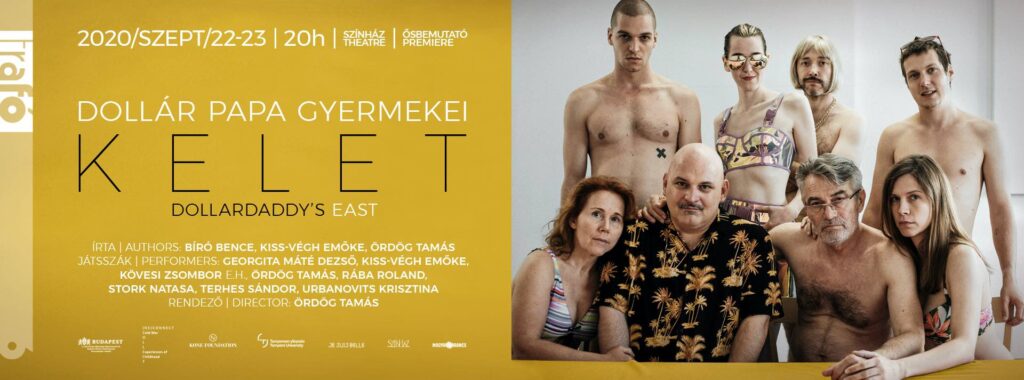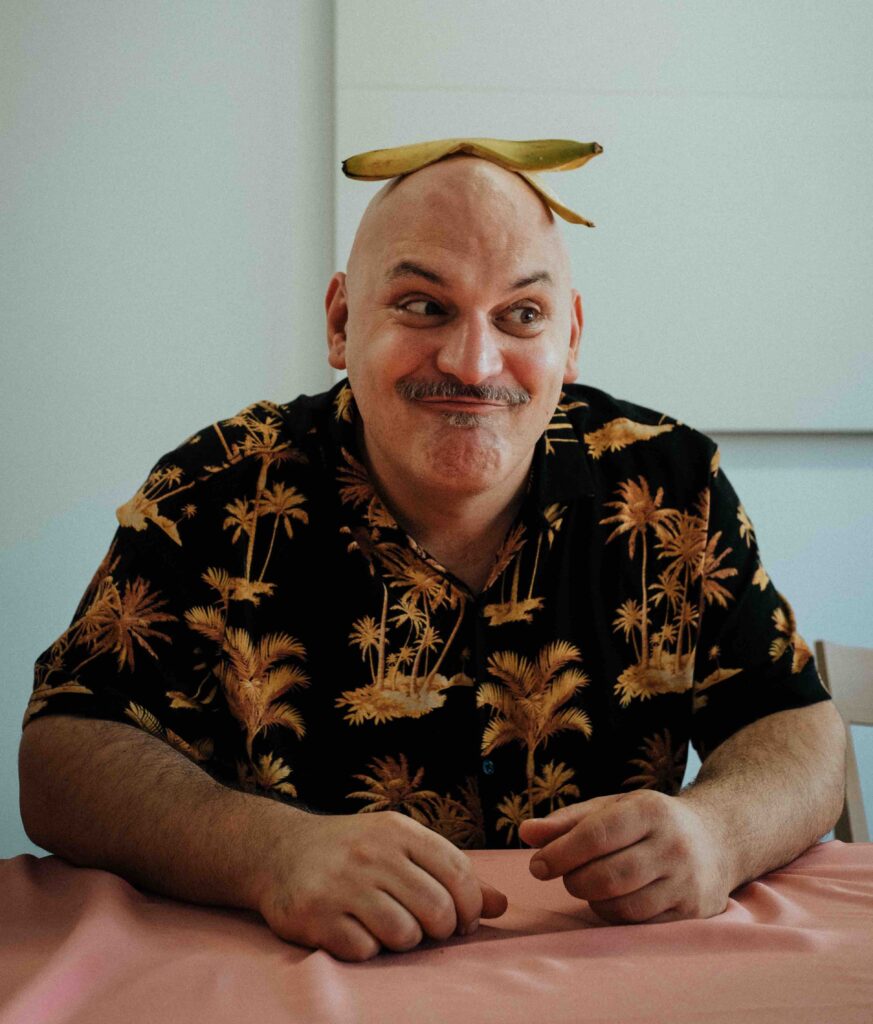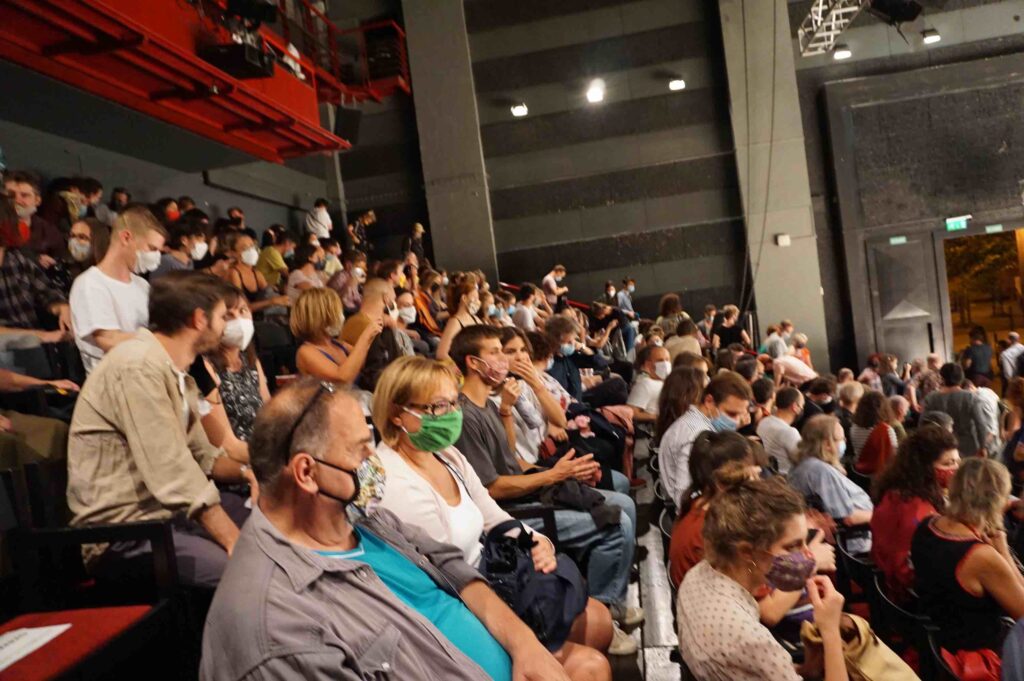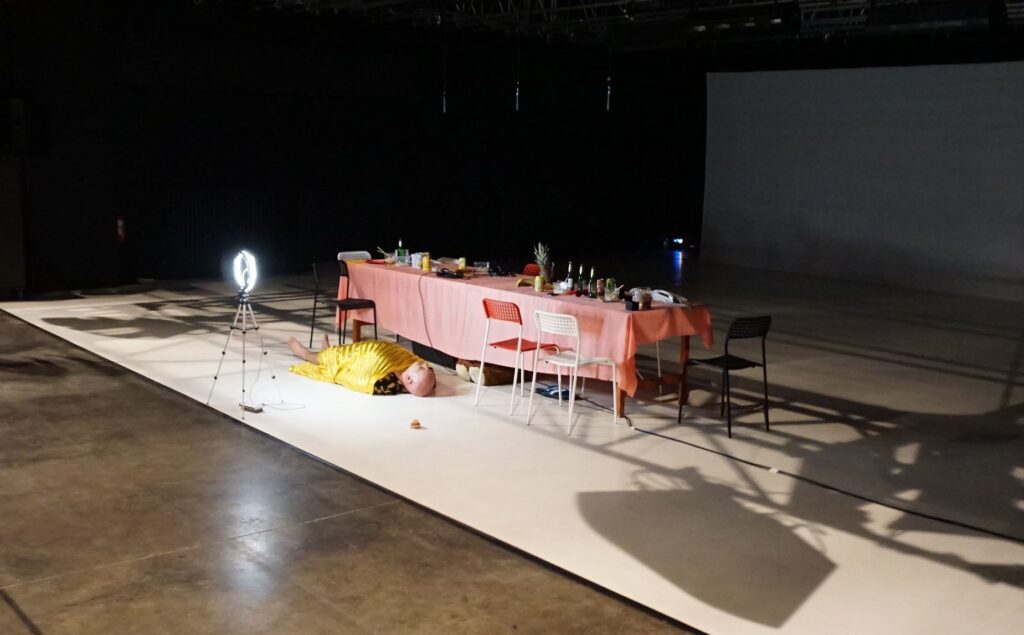Spacetime Provocations with Childhood Memories

With overwhelming success, the play ‘KELET/EAST’ premiered to a full house in Trafo Theatre on September 22-23, 2020 in Budapest, Hungary. Performed by Dollardadd’s theater group, the play was inspired by childhood memories of the post/socialist periods produced as a part of the Recollect / Reconnect project.
The play tells the story of Roland who won the 1986 Talent Show in Hungary for his clown performance and received a much coveted award – a trip to communist Vietnam. The first part of the play recalls some news and popular TV programs from socialist Hungary and two Talent Show performances. At the same time, the play frequently shifts times and spaces between socialist Hungary and contemporary Thailand where Roland lives at present. The second part of the play is a reunion of Roland’s family in Thailand, which slowly unfolds their shared past and present filled with unresolved tensions and provocations, providing some insights into the complex conditions of post-socialist life.

The play itself is like remembering. Its dreamy texture reflects an atmosphere of memory sharing during the project’s memory workshops in Berlin, Riga, Helsinki, and Mexico City. The script writers, Bence Bíró, Emőke Kiss-Végh, Tamás Ördög, sought to avoid a museum-like theatre representing directly memory stories from the project archive. Instead of a documentary theatre style, the play is dotted with hints of memories across a new storyline. As Tamás Ördög recalled in one of our discussions, “After the Berlin and Riga workshops I noted down some ideas for the play: family travel, summer holidays, different behaviours, three generations, no kids on stage, celebration like birthday or Christmas. I am pleased to see that all these themes are present in the script.”
The shifting time-spaces in the play bring to the fore how participants experienced the process of remembering, rhythmically switching between different time-spaces and simultaneously experiencing the past and the present. This rhythm of remembering seems to have reverberated through the actors and the play itself, inevitably affecting the audiences too. Such a powerful effect was possibly achieved because actors themselves engaged in a memory workshop in preparation for the play last summer. While the main character’s memory lends the storyline for the play, real life stories, dreams, and feelings of actors and research participants mix with fiction in the play and connect in fleeting emotional moments on the stage.


Tamás Ördög, the director of the play, explained that in his view “theatre is never finished, it is always a work in progress, changing between performances; and the audience also differentially contributes each time by producing feelings in the actors as well.” Having watched the performance three times already, I experienced in motion the subtle and more prominent changes made each time by the actors and the director. It was shown to me how theatre is a live art form and therefore needs to be kept alive. In each iteration, the play produced different emotional landscapes in me and the people I conversed with after the performances.
We are pleased that the play and the accompanying travelling exhibition have drawn in so many people reconnecting with their childhood memories.
If you can read Hungarian or willing to use google to translate some reviews, please check the ones, which appeared in a literary journal, an online cultural magazine, and Magyar Narancs.

Susanne Gannon:
“So exciting to see (from a distance!) how theatrical creative processes worked – and to see the through line where memories keep provoking more memories for everyone who becomes part of the continuous rippling outwards of this project – Recollect/ Reconnect. Starting from the initial memory workshops through drama theatre workshops, through actors workshops, through rehearsals and performances, and all the audience who entered the vortex. I love the comment from Tomas that ‘theatre is never finished’ and Zsuzsa’s comment about the liveness and liveliness of theatre where ‘each iteration …produced different emotional landscapes’.”